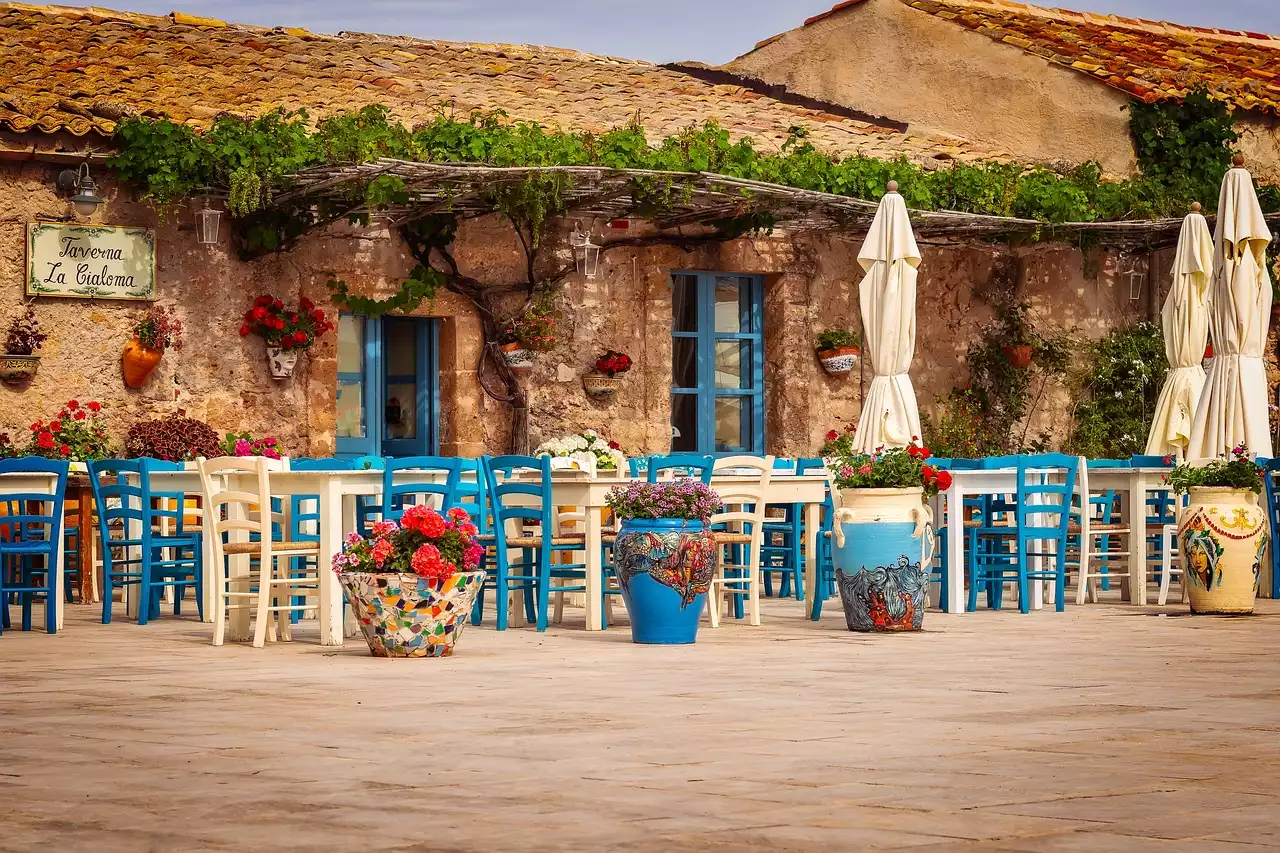Influence of classical Greek culture on art
Greek art, with its emphasis on beauty, balance, and harmony, has had a profound influence on the art world throughout history. The classical Greek aesthetic principles have been revisited and reinterpreted by countless artists, providing a bridge between the past and the present.
One of the most famous examples of Greek-inspired art is the statue of David by Michelangelo. Inspired by the classical Greek ideal of the human form, Michelangelo's David embodies the perfect proportions and idealized beauty that were highly valued in ancient Greece. The statue serves as a testament to the enduring influence of classical Greek culture on the world of art.
Another notable artwork that draws inspiration from classical Greek culture is Jacques-Louis David's painting, "The Death of Socrates." The painting depicts the final moments of the famous Greek philosopher, capturing the stoicism and intellectual resilience that were admired in ancient Greece. Through this painting, David pays homage to the philosophical legacy of Socrates and highlights the continued relevance of classical Greek culture in contemporary society.
In addition to these iconic works, Greek motifs and aesthetics can be found in various forms of art, including architecture, pottery, and jewelry. The use of columns, friezes, and pediments inspired by Greek architecture can be seen in many buildings around the world, symbolizing the enduring influence of classical Greek culture on the field of architecture.
The timeless appeal of Greek art lies in its ability to evoke a sense of beauty, balance, and proportion. By incorporating elements of classical Greek culture into their work, artists today pay homage to the rich artistic heritage of ancient Greece while also creating contemporary pieces that resonate with modern audiences.
Impact of classical Greek culture on literature
Greek mythology and literature have had a profound impact on the world of literature, providing a rich source of inspiration for writers throughout history. The timeless themes and archetypal characters found in Greek mythology continue to captivate readers and offer insights into the human condition.
One of the most notable literary works influenced by classical Greek culture is Dante Alighieri's "The Divine Comedy." Drawing heavily from Greek mythology and literature, Dante's epic poem explores the journey of the soul through Hell, Purgatory, and Heaven. By incorporating elements of classical Greek culture into his narrative, Dante creates a work that transcends time and speaks to universal truths about the human experience.
Another example of classical Greek influence in literature is William Shakespeare's play, "Oedipus Rex." Based on the ancient Greek tragedy by Sophocles, Shakespeare's adaptation explores themes of fate, free will, and the consequences of one's actions. Through this play, Shakespeare pays homage to the enduring power of ancient Greek storytelling and highlights the continued relevance of classical Greek culture in the realm of literature.
Greek mythology and literature have also influenced contemporary authors, such as J.K. Rowling, who drew inspiration from classical Greek myths and legends in the creation of her "Harry Potter" series. By incorporating elements of ancient Greek culture into her narrative, Rowling adds depth and richness to her storytelling, creating a world that resonates with readers of all ages.
The enduring appeal of Greek literature lies in its ability to explore timeless themes and complex human emotions. By drawing upon the stories and characters of ancient Greece, writers today can tap into a shared cultural heritage and create works that resonate with readers across time and place.
Philosophy and classical Greek culture
The ancient Greeks were pioneers in the field of philosophy, laying the foundation for Western philosophical thought. The works of Socrates, Plato, and Aristotle, among others, continue to shape contemporary philosophical discussions on ethics, politics, and the nature of knowledge.
Socrates, one of the most influential figures in Western philosophy, emphasized the importance of self-examination and the pursuit of truth. His method of questioning, known as the Socratic method, continues to be used in educational settings to encourage critical thinking and intellectual exploration.
Plato, a student of Socrates, expanded upon his teacher's ideas and developed his own philosophical system. His dialogues, such as "The Republic" and "The Symposium," explore a wide range of topics, including justice, love, and the nature of reality. Plato's ideas have had a lasting impact on Western philosophy, influencing thinkers such as Immanuel Kant and Friedrich Nietzsche.
Aristotle, another student of Plato, further developed Greek philosophy and made significant contributions to various fields, including ethics, logic, and biology. His works, such as "Nicomachean Ethics" and "Metaphysics," continue to be studied and debated by philosophers today, shaping contemporary discussions on morality, metaphysics, and the nature of the universe.
The enduring influence of classical Greek philosophy can be seen in modern-day society, particularly in the fields of ethics and politics. Many ethical theories, such as utilitarianism and virtue ethics, have their roots in ancient Greek philosophy. Likewise, democratic principles, which originated in ancient Athens, continue to inform contemporary political systems around the world.
By studying the works of ancient Greek philosophers, we can gain insights into fundamental questions about human existence and the nature of reality. The enduring relevance of classical Greek philosophy lies in its ability to provide a framework for understanding the world and our place within it.
Classical Greek culture in modern-day society
Despite the passage of centuries, classical Greek culture continues to be celebrated and cherished in modern-day society. From the preservation of ancient Greek ruins to the revival of Greek festivals and traditions, efforts are being made to ensure that this rich cultural heritage is not forgotten.
One example of the preservation of classical Greek culture can be seen in the archaeological sites of Athens, such as the Acropolis and the Parthenon. These iconic structures stand as a testimony to the architectural brilliance of ancient Greece and attract visitors from around the world.
In addition to the preservation of physical structures, Greek festivals and traditions are also being revived and celebrated. Events such as the Athens Epidaurus Festival and the Delphi Festival showcase Greek music, dance, and theater, providing a platform for contemporary artists to showcase their work while honoring the traditions of ancient Greece.
Furthermore, classical Greek culture continues to be taught in educational institutions around the world, ensuring that future generations have the opportunity to learn about and appreciate this rich cultural heritage. Through the study of ancient Greek language, literature, and philosophy, students gain a deeper understanding of the impact of classical Greek culture on the world we live in today.
The enduring appeal of classical Greek culture lies in its ability to speak to universal truths and evoke a sense of timelessness. By exploring the ancient Greeks' ideas, stories, and artistic achievements, we can gain insights into our own lives and connect with a shared human experience that transcends time and place.
Preserving and celebrating classical Greek culture
Preserving and celebrating classical Greek culture is essential to ensuring that its legacy continues to inspire future generations. Efforts must be made to protect ancient Greek artifacts, promote the study of Greek language and literature, and support contemporary artists who draw inspiration from classical Greek culture.
One way to preserve classical Greek culture is through the protection and conservation of ancient Greek artifacts and archaeological sites. Organizations such as the Hellenic Ministry of Culture and Sports work tirelessly to maintain and restore these cultural treasures, ensuring that future generations can experience the beauty and historical significance of ancient Greece.
In addition to physical preservation, the study of ancient Greek language and literature is crucial in understanding and appreciating classical Greek culture. By offering courses and educational programs focused on ancient Greek language and literature, educational institutions can ensure that this rich cultural heritage continues to be passed down to future generations.
Supporting contemporary artists who draw inspiration from classical Greek culture is another way to celebrate and preserve its legacy. By providing platforms for artists to showcase their work, organizations and institutions can encourage the creation of new works that build upon the artistic traditions of ancient Greece.
Conclusion
Classical Greek culture continues to inspire artists, writers, and philosophers today, serving as a timeless source of inspiration and a bridge between the past and the present. From the world of art to the realm of literature and philosophy, the impact of ancient Greece can be seen and felt in various aspects of contemporary society.
By exploring the ideas, stories, and artistic achievements of the ancient Greeks, we gain insights into our own lives and connect with a shared human experience that transcends time and place. The enduring appeal of classical Greek culture lies in its ability to speak to universal truths and evoke a sense of timelessness, ensuring that its legacy continues to inspire and resonate with future generations.











